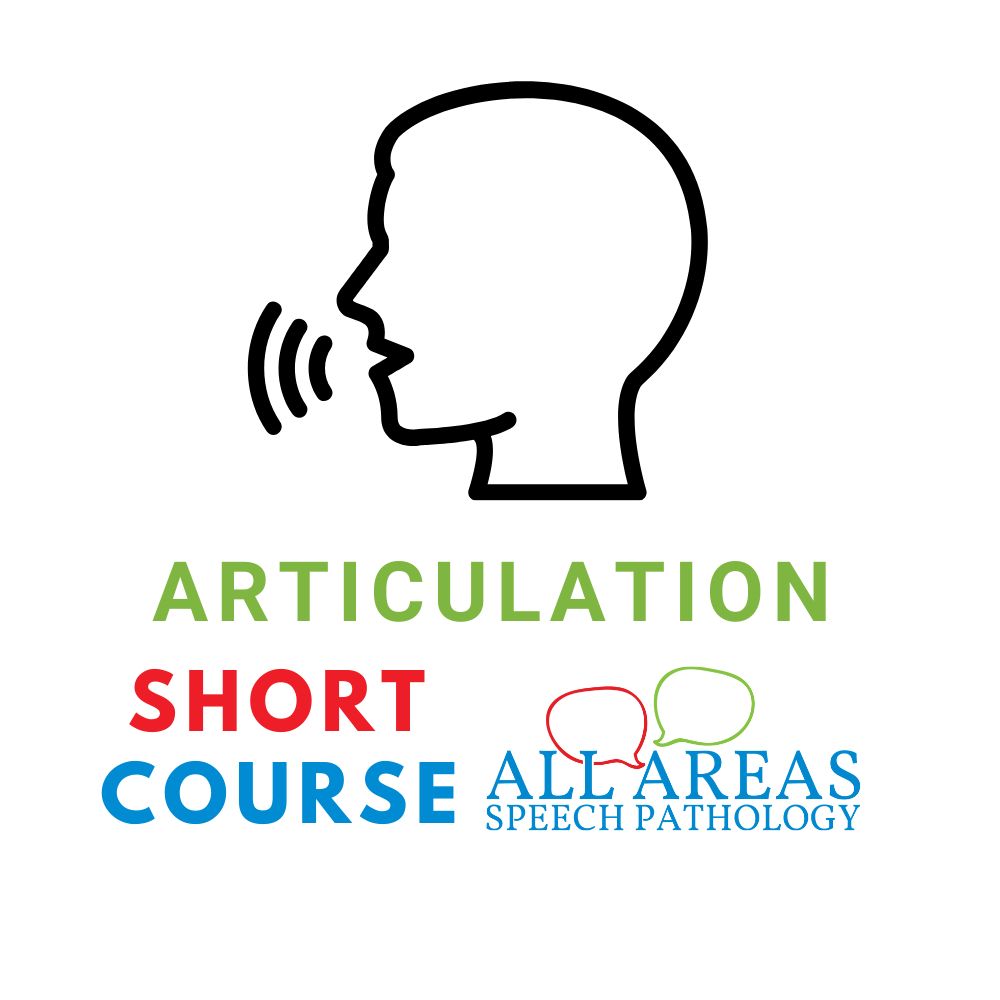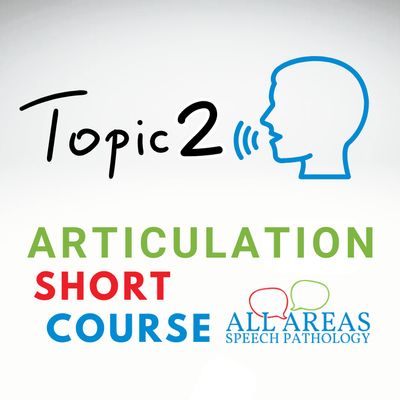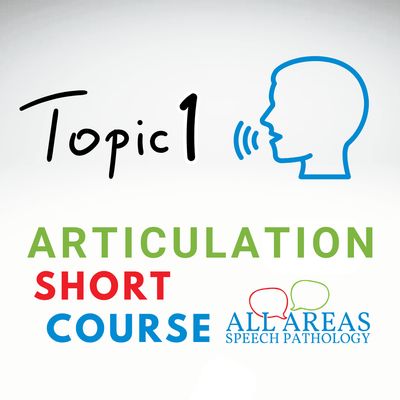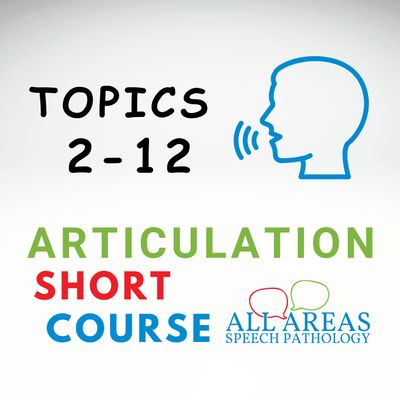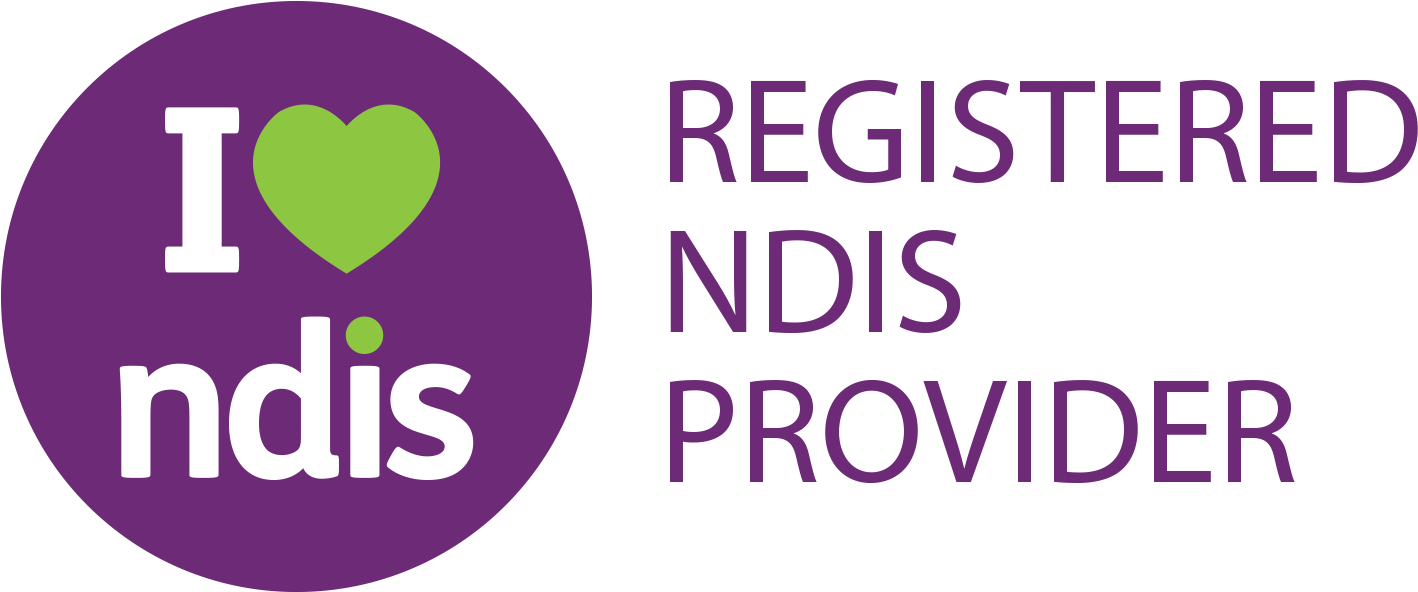Enrol in the Full Course (includes all topics)
About the Course
- The Articulation Short Course is aimed at people who are not speech pathologists however, their role involves assisting with speech clarity.
- The course provides participants with information about typical speech development, speech delays and speech disorders including practical steps for pronouncing sounds clears, helping with unclear speech and delivering articulation programs.
- Opportunities are provided for practicing strategies to assist with common speech errors in early childhood and primary school age (also suitable for working with teenagers and adults with speech difficulties/disabilities).
- Participants learn the steps in implementing speech pathology programs, under the direction and guidance of a qualified speech pathologist.
- Participants have access to the course coordinator (a speech pathologist with 31 years experience) through email support, including receiving individualised feedback for each of the 12 Topic Quiz Activities.
- Articulation skills refer to the motor skills a person uses to pronounce the sounds of English. Also known as speech clarity , including how we produce individual vowel and consonant sounds with the mouth. Articulation refers to the way speech sounds are combined to form whole words.
- Articulation difficulties impact on how easily a child or adult can be understood when speaking in sentences. Poor articulation may result in communication difficulties, social withdrawal or negative behaviour outbursts.
The Articulation Short Course has been created for:
- Speech Pathology Assistants, Early Childhood Educators, Early Intervention Workers, School Teachers, School Support Staff, Disability Workers and Allied Health Assistants!
- Parents and Carers also very welcome to engage with the course to combine personal learning with accessing strategies to support a family member!!
List of 12 Topics
Topic One: Exploring Articulation Skills
How We Produce Speech Sounds With the Mouth and Larynx
Topic Two: Identifying Speech Sound Errors
Listen to Spoken Words and Identify Sound Error Patterns
Topic Three: Writing Down What We Hear
Document Pronunciation of Error Sounds in Words
Topic Four: Learning About Articulation Programs
Move Up and Down Steps and Prepare Contingencies
Topic Five: Delivering an Articulation Program
Work Effectively with Preschool Children (3 to 5 years)
Topic Six: Delivering an Articulation Program
Work Effectively with Early Primary Students (Kindy - Year 2)
Topic Seven: Delivering an Articulation Program
Work Effectively with Older School Students (Years 3 - 12)
Topic Eight: Delivering an Articulation Program
Adapt Strategies to Meet Needs of Students in Support Classes
Topic Nine: Using Finger Spelling to Help Speech Pronunciation
Assist Clients to Develop Articulation Skills
Topic Ten: Tips for Generalisation Once a New Sound is Correct
Help New Sounds Be Used in Everyday Speech
Topic Eleven: Programs for Sound Error Patterns
Learn How to use Minimal Pairs Approach to Sound Errors
Topic Twelve: Behaviour Strategies for Reluctant Learners
Make Articulation Skills Practice Enjoyable/Effective
COURSE CONTENT:
Participants learn about the following in Topic One
- How speech sounds are made using the articulators and larynx
- The 44 phonemes in English, including 24 consonants and 20 vowels
- Phonetic transcription symbols for voiceless th /θ/, voiced th /ð/ and voiced zh /ʒ/
- The difference between consonant and vowel phonemes
- The characteristics of consonant phonemes - Place, Manner and Voice
- The oral structures : tongue, teeth, lips, alveolar ridge, soft palate, larynx & vocal folds
- The categories for manner: plosives, nasals, glide, fricatives, affricates and liquids
- How to determine whether sounds are voiced or voiceless
- Diagrammatic view of where sounds are made in the mouth (front, middle, back)
For a list of content for Topic Two and further topics, click here

ACCESS TO THE COURSE VIA MOODLE:
- Upon enrolment in the Articulation Short Course, participants are authenticated as official users on the AASPEECH Moodlecloud Site . This enables access to each topic of the course.
- Moodle can be accessed on a desktop computer or hand held device. All materials can be viewed online or downloaded to a desktop or handheld device.
HANDWRITTEN ACTIVITIES TO PRACTISE NEW SKILLS
- Each topic includes handwritten activities that assist with consolidating skills.
- Participants are encouraged to download and print activity sheets for the handwritten activities however, marking-up documents on screen is also suitable for people who prefer not to print.
- We can print and send out booklets (for a small additional fee) for participants who do not have access to a printer but prefer to complete activities using a pen or pencil.
TIME FRAMES FOR COMPLETING TOPICS:
- The full course consists of 12 topics. The topics are suited to being undertaken on a weekly or fortnightly basis (however, participants may choose their own pace for completion of each topic).
- Participants complete the entire short course via self-study, using an online ‘on-demand’ approach.
- Course access is is available 24/7 via the aaspeech page on the Moodlecloud website (or via the Moodlecloud App on a compatible device).
The following time commitment can be used as a guide for each topic:
1) Introduction to the topic
- reading a handout
- watching a video
- completing a worksheet
- allow 0.75 to 1.5 hours
2) Main body of the topic
- watching and engaging with pre-recorded tutorial
- includes use of downloadable workbooks
- allow 1.5 hours
3) Consolidating learning from the topic
- explore further learning through the supplementary items
- review and self-mark worksheet
- complete one page quiz to reinforce concepts learnt in the workshop
- email quiz to course coordinator (speech pathologist) to receive feedback and certificate
- allow 0.5 to 1.0 hour
COMPLETE TOPICS IN NUMERICAL ORDER
Each new topic consists of content that builds on skills and knowledge covered in previous topics:
- Topics are therefore required to be undertaken in chronological order
- All 12 topics are required to be undertaken if wishing to fully complete the short course
- Participants may choose to complete the course more quickly or slowly, depending on learning style (Up to 12 months* is available for completion, with extensions possible in some circumstances * conditions apply )
For further information about the course including viewing sample videos, click the link below.
Further information about the short course
OPTION TO START WITH TOPIC ONE AS A TRIAL
Not ready to sign up for the full course? Why not try TOPIC ONE to explore the suitability of the course before continuing on to further topics?
NEW IN 2025: Short Course Trial:
You are now able to access the first topic in order to trial the course and see if it contains content that would be beneficial for your learning needs.
Try Topic One at 60% the RRP:
- One off payment of $19.80 incl. GST
- Undertake the first 10 items (up to 3.5 hours of learning activities) of the Articulation Short Course to see if this is what you are looking for in your professional learning/self development
- Click here to enrol in Topic One for $19.80

